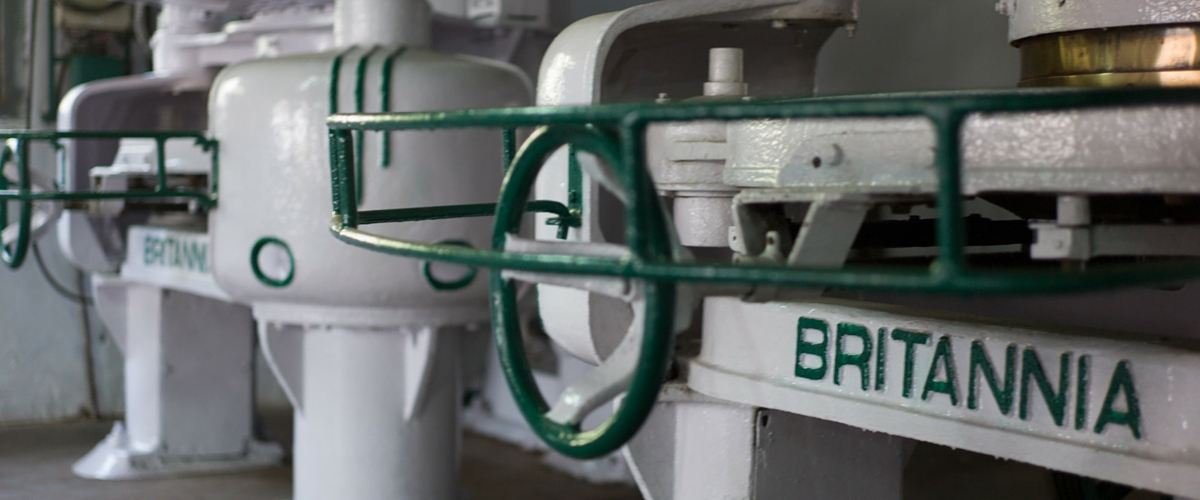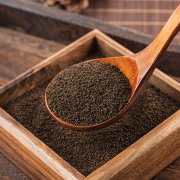Black tea production process | how is black tea produced? History and advantages of tea mill
Britannia-in addition to being a flashy title for Britain, as in Britannia Rules the Waves, it is also a trade name for a series of machines invented by the young inventor William Jackson in the 1870s.
His tea mill was the main innovation that directly changed all aspects of tea production in Assam. In terms of production and consumption, it has shifted the global market from Chinese green tea to Indian black tea.

This is not only historic, because it solves the core problems of the development of the tea industry in the past 150 years and in the foreseeable future: (1) machines replace labour (such as mass market bags and mixtures), (2) machine utilization of labour, (mid-range whole leaves) (3) machines are superior to labour (vacuum packaging and storage) (4) machines reduce labor (quality varieties of tea).
There are three main links in the process of making tea: picking in the tea field, processing in the factory, and distributor distribution.

With the emergence of mechanization, the quality and variety of some of these production stages have been greatly reduced.
This is especially true when pulling leaves from shrubs. The difference between "two leaves and one bud" orange and white and machine picking is equivalent to catching and preparing fresh wild Pacific salmon and farm-raised frozen tilapia. This is the contrast between machine and manual labor.
Similarly, in terms of packaging tea, the warehouse storage and vacuum packaging of fresh tea are completely superior to the treatment of tea, just like a shovel of mulch. Here, machines are superior to human labor.

Important Notice :
前街咖啡 FrontStreet Coffee has moved to new addredd:
FrontStreet Coffee Address: 315,Donghua East Road,GuangZhou
Tel:020 38364473
- Prev

Which Indian tea producing area tastes good? Indian black tea producing area Assam Darjeeling Nilgiri Congra
Everything from man to tree is the result of conditionality. We are the people, places and conversations we suffer. Unsurprisingly, this statement also applies to tea. Have you ever wondered why Darjeeling Tea or Assam tea tastes like this? Think about it. For example, when we talk about typical Darjeeling Tea or bold Assam tea, notice how we mix these teas with them.
- Next

Tea production process | after kneading and twisting machine, black broken tea appears, such as how to choose black tea correctly
The kneading and twisting machine is replaced by rotor black broken tea (known as RotOvane machine abroad). This is involved in the wilting / rolling / oxidation sequence. It is the basis for producing CTC black tea and more and more green tea.
Related
- The ceremony is full! Starbucks starts to cut the ribbon at a complimentary coffee station?!
- A whole Michelin meal?! Lucky launches the new "Small Butter Apple Crispy Latte"
- Three tips for adjusting espresso on rainy days! Quickly find the right water temperature, powder, and grinding ratio for espresso!
- How much hot water does it take to brew hanging ear coffee? How does it taste best? Can hot water from the water dispenser be used to make ear drip coffee?
- What grade does Jamaica Blue Mountain No. 1 coffee belong to and how to drink it better? What is the highest grade of Blue Mountain coffee for coffee aristocrats?
- What are the flavor characteristics of the world-famous coffee Blue Mountain No. 1 Golden Mantelin? What are the characteristics of deep-roasted bitter coffee?
- Can I make coffee a second time in an Italian hand-brewed mocha pot? Why can't coffee be brewed several times like tea leaves?
- Hand-brewed coffee flows with a knife and a tornado. How to brew it? What is the proportion of grinding water and water temperature divided into?
- What is the difference between Indonesian Sumatra Mantinin coffee and gold Mantinin? How to distinguish between real and fake golden Mantelin coffee?
- What does bypass mean in coffee? Why can hand-brewed coffee and water make it better?

